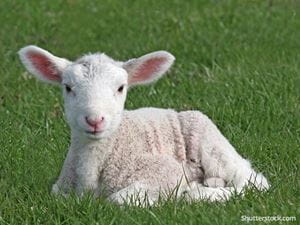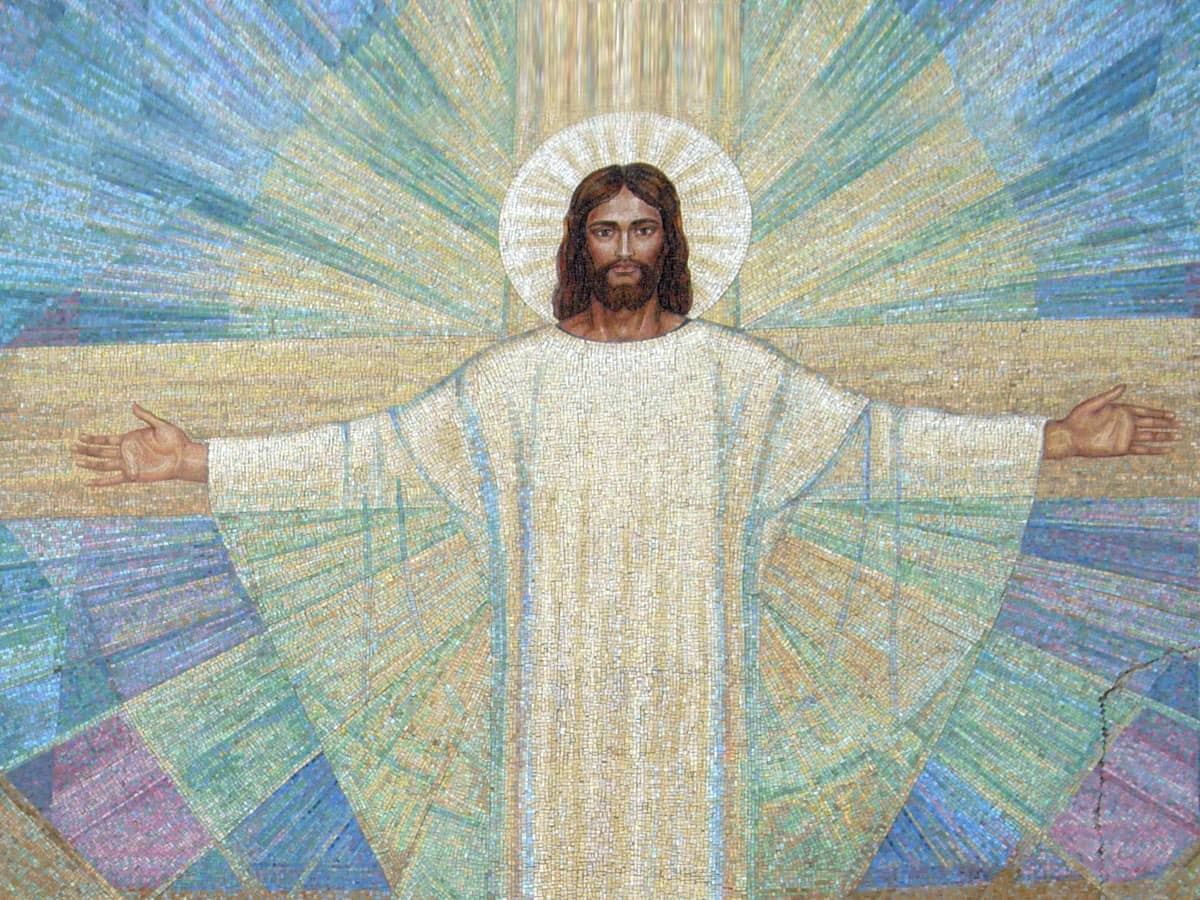
This Lent, like many other Christians, I'm trying to begin each morning with lectio divina—a slow, contemplative and, I find, especially prayerful manner of reading Scripture. I have started with Exodus and Leviticus, where the ritual sacrifices of lambs, oxen and other animals strike me. Imagining how the offerings of these slaughtered animals looked, sounded and smelled fuels powerful meditations on the Passion and slaughter of the Lamb of God. It also makes me wonder: Why do we Christians still have countless lambs and sheep—among other species—killed so violently for us?
Christ's death, after all, made animal sacrifices obsolete, for "by one offering he has made perfect forever those who are being consecrated. … [T]here is no longer offering for sin" (Hebrews 10:14 and 10:18). So lambs and other sheep need not die for our sins.
But need they die for us at all?
God put animals' fate into our hands only after He lamented our ancestors' wickedness and flooded the Earth. This likely left Noah's family with little to eat and wear but animals. That's a bleak position to be in: Kill, eat and cover oneself with God's creations—or perish.
I don't face such desperation. Thankfully, very few of us do these days in the U.S. and other nations blessed with an abundance of resources and choices. We don't need to eat lamb—hundreds of healthy, happy Trappist monks and nuns across the U.S. can attest to that—or wear wool.
And yet, in a nation where more than 70 percent of the population self-identifies as Christian, around 37,000 lambs and older sheep are slaughtered each week at federally inspected plants. Nearly 190,000 lambs and sheep were killed on U.S. farms from 2014 to 2015.
My work at PETA with eyewitnesses documenting the treatment of animals across many industries has brought many disturbing moments before my eyes. But some of the most challenging—and equally instructive—incidents come from the wool industry.
In Colorado, my friend documented a shearer who twisted one such victim's neck, breaking it, and then kicked her headfirst down a chute, where she died. This sheep, despite being "harshly treated, submitted and did not open [her] mouth"—just like Christ (Isaiah 53:7).
As Blessed John Henry Newman once preached on that very Scripture, "[T]here is something so very dreadful, so satanic in tormenting those [like sheep] who never have harmed us … who are utterly in our power … that none but very hardened persons can endure the thought of it."
The horrible treatment of that sheep in Colorado was no isolated incident. In 2014, another colleague of mine documented that workers in Argentina cut the throats of conscious lambs—bound just like the victim in Francisco de Zurbarán's poignant painting Agnus Dei—and started to skin some of them while they were still kicking. Months earlier, PETA had revealed that in the Australian state of Victoria, workers punched sheep in the face and beat them in the head with electric clippers and even a hammer while shearing them.
In 2015, another eyewitness saw a worker in South Australia slam an unwanted lamb against a wooden floor and then throw him into a paddock, leaving him to convulse and die in the dirt. Weeks later, this time in Chile, my friend saw a worker stab a fully conscious sheep in the neck and casually look at his mobile phone as she bled out. Another man started to skin a sheep while she was still alive.
All that pain and agony was inflicted on God's creations here and elsewhere simply so that someone could buy a lamb chop or a pair of socks made of wool. The U.S. produced more than 26 million pounds of wool—and imported millions more pounds—in 2014.
So the question becomes: Are the sheep and lambs who are slaughtered today dying because of our sins?
Sin "is an offense against … right conscience … caused by a perverse attachment to certain goods" (Catechism of the Catholic Church §1849). If we wouldn't slit a conscious lamb's throat or break a sheep's neck ourselves, can our conscience rightly accept having others do so on our behalf?
Isn't it only our stubborn attachment to mere taste preferences—whether for a particular dish or a certain sweater—that keeps us buying lambs' flesh or wool in the face of such endemic cruelty? Aren't such purchases "contrary to human dignity," which is how the Church describes actions that "cause animals to suffer or die needlessly" (Catechism of the Catholic Church §2418)?
I confess that I once cherished the wool sweaters that my grandparents gave me each Christmas. But when I learned of the agony woven in with that yarn and the blood washed out of it, I could no longer in good conscience wear them or any wool. To do so would be to support all the terror and suffering that exist in the interconnected wool and sheep-flesh industries.
Isaiah compared the Suffering Servant to "a lamb led to slaughter or a sheep silent before shearers" (53:5)—but unlike Christ's sacrifice, are not sheep being pierced and crushed today because of our iniquities and not for them?
And if sin is, in fact, at play in informed consumer choices that willfully support cruelty to some of the meekest of God's creatures, there may be consequences well beyond the pain and death for sheep. For we "crucify [Christ] still, when [we] delight in [our] vices and sins," according to St. Francis of Assisi (Admonitio 5, 3). If, as His Holiness, Pope Francis wrote, Mary "now … grieves … for the creatures of this world laid waste by human power," is she weeping for the lambs and sheep our purchases have destroyed (Laudato Si', §241)?
As we strive to turn away from sin—in Lent and every other day—may we also take up Christ's instruction to "proclaim the gospel to every creature" (Mark 16:15).
Let us start to bring the Lamb's good news to all creation by leaving lambs and sheep off our plates and their skin and fleece off our backs.
Our choice as Christians here is simple but stark. We can work toward God's peaceable kingdom to come, in which no animal will be harmed or destroyed (Isaiah 11:6–9). Or we can pay others to harm and stab these docile, fellow living beings and, in so doing, risk piercing our Savior anew. Which will you choose?

